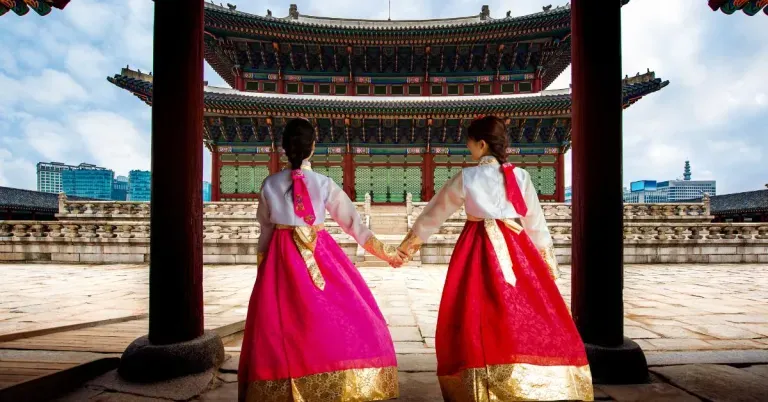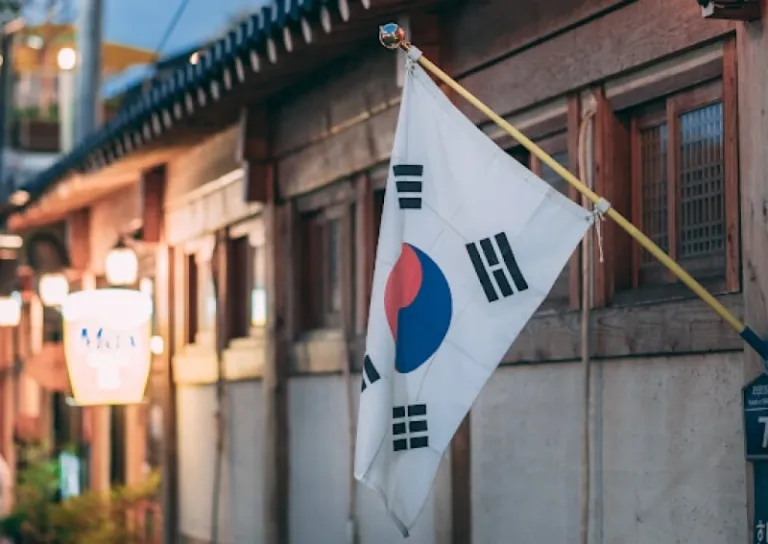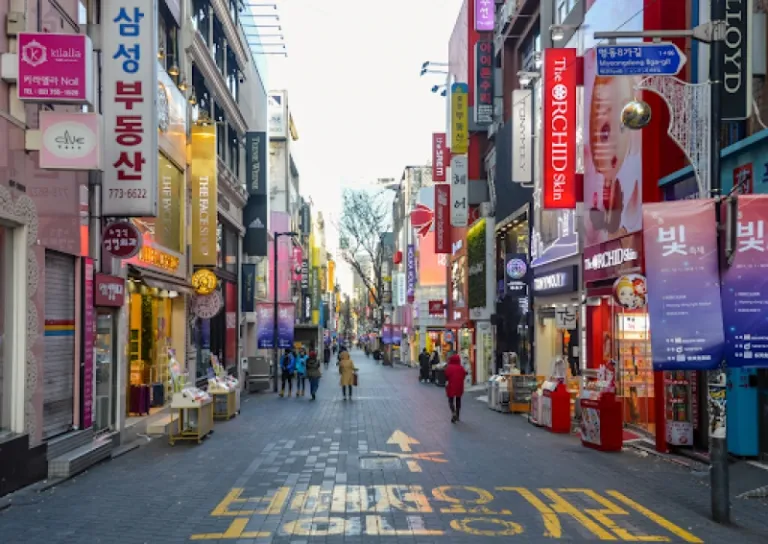Our favourite places to stay on this sleepy Cebu island.
What to Know About the Digital Nomad, Hallyu Visas in South Korea

Love K-dramas, BTS, and all things Korean? You might be in luck: South Korea is rolling out two brand new visas specifically designed for fans of Korean culture and those looking for a workation setup. Buckle up and prepare for the new South Korea visas, because this could be your chance to live the K-wave dream!
Fueled by the popularity of K-pop, K-dramas, and general K-culture, South Korea is introducing two new visas in 2024: the digital nomad visa (workation visa) and the K-culture training visa (Hallyu visa). This initiative aims to draw millions of international visitors this year and establish South Korea as a top global travel destination. Below, we’ve rounded up the information we have so far about these new visa programs that promise to make our Korean fantasies a reality.
Also read: Good News: Getting a Korean Visa Is Now Much Easier for Select Filipinos
Your guide to South Korea’s Hallyu visa
What is the Hallyu or K-culture training visa?

One of the new visas South Korea is unveiling is the Hallyu visa or K-culture training visa. It will enable foreigners to reside in the country for up to two years.
In contrast to the E-6 visa that necessitates training agreements with Korean entertainment companies, the upcoming Hallyu visa streamlines the application process. Specifically, it only requires candidates to enrol in certified institutions overseen by the Ministry of Culture, Sports, and Tourism.
What are the requirements for a Hallyu visa?

To be eligible for the Hallyu visa, participants must enrol in local performing arts academies. Beyond that, details regarding the Hallyu visa’s specific requirements have not been revealed yet. More information is anticipated to be released in the latter half of 2024.
While waiting for the requirement list, we suggest you prepare the following so your application will be a breeze:
- Valid passport
- Passport-sized photograph (3.5 x 4.5cm, colour photo)
- Visa fee (to compare, a regular tourist visa costs ₱900)
- Desired program and school (accredited by the Ministry of Culture, Sports, and Tourism)
What to know about the Digital Nomad visa
What is the Digital nomad or ‘workation’ visa?

The Digital Nomad visa is one of the new South Korea visas that is intended for those who aim to live in the country and work remotely for overseas-based companies, thereby encouraging the “workation culture” within the country. The workation visa is currently on a trial period from Jan–Dec 2024. Following the trial phase, officials will assess the feasibility of making the visa permanent, opening the door for potential enhancements in the future.
Who will be granted a Digital Nomad visa?

You are eligible to apply for South Korea’s Digital Nomad visa if you work remotely as an employee, freelancer, or business owner serving companies or clients situated outside of South Korea. Applicants must also be 18 years old or above, with a minimum of one year of experience in their chosen field.
Documents required for a Digital Nomad visa
- A valid passport with a minimum validity of six months from the application date.
- 1 recent passport-size photo, taken within the last six months, to be attached to the certificate of TB (tuberculosis) screening.
- Appropriate documentation of qualifications. This includes your updated resume, highest educational certificates, and any other professional qualifications relevant to your area of expertise.
- Evidence of an annual income of no less than $65,860 (₱3,622,300) shown through the latest 12 months of bank and income statements or the most recent tax return.
- Comprehensive health insurance for the duration of your stay in South Korea. Coverage must be at least $75,000 (₱4,125,000), extending to dependents if they are joining you.
- A certificate of a clean criminal record from a recognized authority in your home country.
- Documentation proving the relationship with any dependents for family visa applications (if relevant).
Filipinos must also submit a Tuberculosis (TB) Screening Certificate issued by hospitals authorised by the embassy. Should the examination outcome be positive, the visa application will be immediately denied.
More details regarding necessary documents and the application process are also available on the official website of the Embassy of the Republic of Korea in the Republic of the Philippines. For visa fees, you can refer to the visa information page.
Also read: South Korean Visa Approval: These Pinoys Share Their Application Stories
Don’t miss this opportunity! Get your application ready for the new South Korea visas ASAP. Whether you’re looking to live and work in the country or to immerse yourself in the Korean entertainment scene, expect an unforgettable journey.
Featured image credit: NeoPhoto via Canva Pro
Published at
About Author
Anne Mercado
Subscribe our Newsletter
Get our weekly tips and travel news!
Recommended Articles
10 Bantayan Island Resorts, Hotels, and Rentals for Your Tropical Escape 10 Best Mountain Cafes in the Philippines for Your Peak Coffee Experience Coffee date on the mountains, anyone?
My 10-Day Southern Vietnam Backpacking Trip for Less Than ₱15k 10 days in Southern Vietnam with less than ₱15k budget. Learn how this Filipina did it!
10 Family Outing Ideas in Metro Manila Under ₱500 Looking for a weekend bonding with the family under ₱500? Head to these places, pronto!
10 Instagrammable Laguna Restaurants and Cafes You’ll Love Elevate your Insta-game at these Laguna spots.
Latest Articles
Dingalan Travel Guide: Nature Spots to Discover Now Underrated coastal gem in Aurora
What to Eat in Bicol: Iconic Dishes and Treats, and Unique Pasalubong You’ll Love Spice up your foodie adventure with iconic Bicol dishes and must-try pasalubong!
Top Travel Trends in the Philippines for 2025 New spots, tips, and trends
New UK Adventure Park to Visit in Devon and Cornwall Fun countryside escape near London
Ultimate Camarines Norte Travel Guide: Waterfalls, Beaches, and More From surfing to secret waterfalls, Camarines Norte is your next escape!

